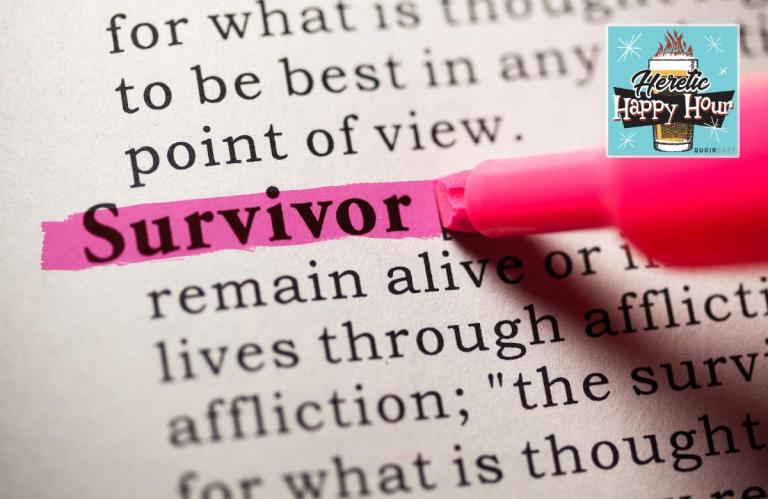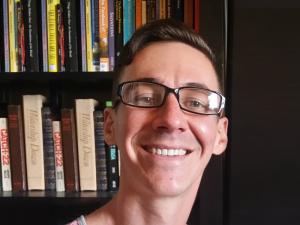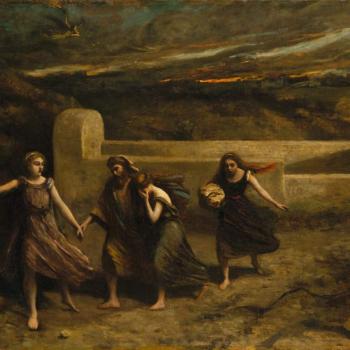
We’ve often heard that history is written by the victors, but when it comes to how religious institutions handle sexual abuse, the truth is more often buried. That’s why our recent Heretic Happy Hour conversation with Jules Woodson and Tiffany Thigpen—two incredible women featured in the documentary For Our Daughters—felt so urgent. Their stories highlight not only the harm inflicted by abusers but the systemic failures within evangelical communities that perpetuate silence and suffering.
The Systemic Rot of Silence and Power
Jules and Tiffany’s experiences paint a sobering picture. Jules shared her story of coming forward about her abuse, only to see her abuser celebrated with a standing ovation in church. Tiffany recounted the lengths to which Southern Baptist leaders went to protect predators while diminishing the voices of survivors.
Their stories aren’t outliers—they’re the norm. The Houston Chronicle’s Abuse of Faith series detailed decades of abuse and cover-ups within Southern Baptist churches. Known predators were shuffled from congregation to congregation in what has become a chillingly familiar pattern: protecting the institution at the expense of the vulnerable.
This isn’t just a series of isolated incidents. It’s a system built to shield the powerful and silence the oppressed. And as Jules and Tiffany pointed out, even well-meaning churchgoers often play a role in this harm, applauding abusers under the guise of grace and redemption.
The Role of Church Culture
At the heart of this issue lies a culture of patriarchy and power. Evangelical institutions often frame abuse as a “moral failure” while labeling victims as divisive troublemakers. The narrative isn’t designed to seek justice; it’s designed to maintain control.
Church leaders wield Scripture to demand forgiveness from survivors, conveniently skipping over the parts of the Bible that call for justice, accountability, and care for the oppressed. The result is a toxic environment where survivors are retraumatized, abusers are emboldened, and congregations are complicit.
Why This Matters Post-Election
We recorded this episode before the election, but now that Trump has been re-elected, the stakes feel even higher. Here’s a man who has been accused of sexual assault by dozens of women, whose Access Hollywood tape revealed his predatory attitude, and who has been embraced by evangelical leaders as a symbol of God’s anointed. For some reason, he’s seen as David and not a certain figure from Revelation.
Trump’s re-election sends a clear message: power matters more than justice. Survivors’ voices matter less than political expediency. And if the leader of the free world can get away with this, what hope do survivors in evangelical churches have?
Jules and Tiffany’s stories aren’t just about their personal experiences; they’re about a culture that allows abuse to thrive. When survivors are silenced and abusers are protected, the message is clear: victims don’t matter.
The Importance of For Our Daughters
This is why For Our Daughters is so vital. The documentary doesn’t just expose abuse; it calls for systemic change. It challenges churches to dismantle the hierarchies that protect predators. It demands accountability from leaders who prioritize institutional preservation over human dignity.
More than that, it amplifies the voices of survivors—voices that have too often been dismissed, ignored, or outright silenced. As Jules and Tiffany emphasized in our conversation, silence is what allows abuse to continue. Breaking that silence is the first step toward change.
What Can We Do?
If you’re wondering what you can do to help, start by watching For Our Daughters. It’s available for free on YouTube, and it’s a powerful, eye-opening film.
But don’t stop there. Ask yourself some hard questions:
- Does your church have protocols to prevent abuse?
- Are leaders held accountable for their actions?
- Are survivors centered in the conversation, or are they being pushed aside in favor of preserving the institution?
If the answer to any of these questions is “no,” then it’s time to demand better. Silence is complicity, and neutrality only ever helps the oppressor.
A Call to Action
Jules and Tiffany’s courage in sharing their stories is a reminder that change is possible, but it requires all of us to act. Watch For Our Daughters. Share it with your friends, your family, your church. Start the conversations that make people uncomfortable because that discomfort is where growth begins.
If you or someone you know has experienced abuse, resources like the RAINN hotline (1-800-656-4673) are available 24/7.
And as you engage with this issue, remember that the cost of standing with survivors may be high—but the cost of ignoring them is far greater. Let’s ensure that the voices of Jules, Tiffany, and countless others aren’t just heard—they’re heeded. Because in a world where power often trumps justice, we need to be the ones who tip the scales.
Also, if you’ve been digging my work on here, and want to see me be able to continue writing as close to full-time as humanly possible, please take a look at my Patreon page at www.patreon.com/mjdistefano. Even $1 a month helps bigly!!!














